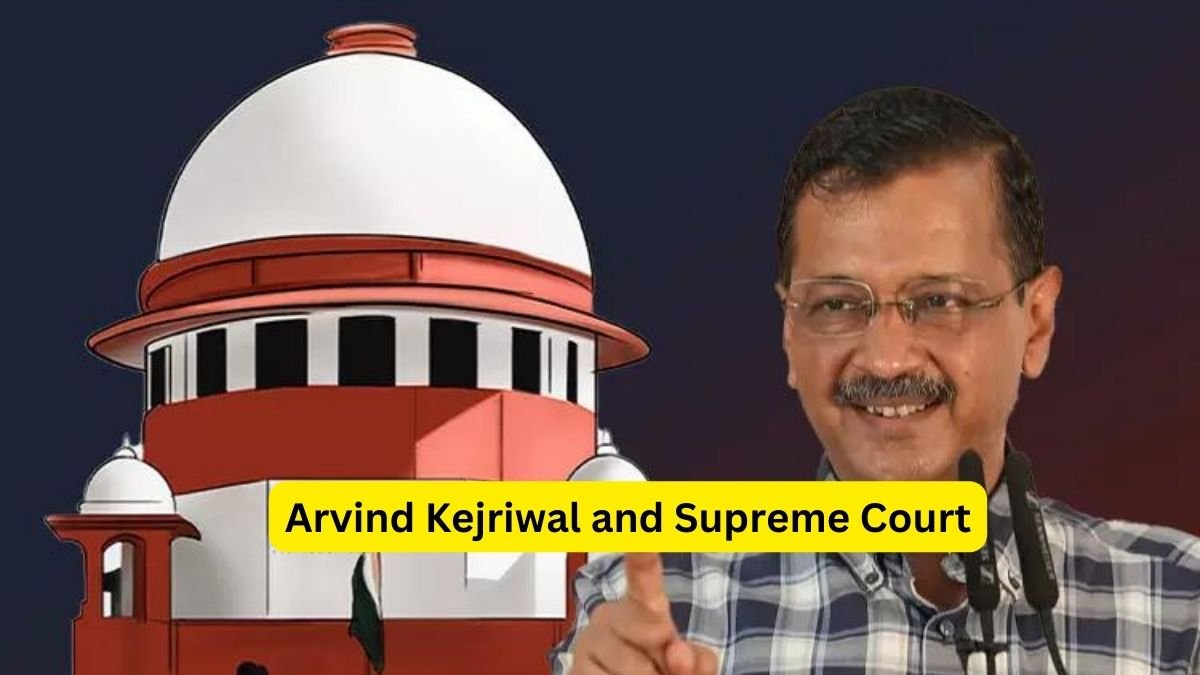Arvind Kejriwal and Supreme Court- The ongoing legal battle involving Delhi Chief Minister Arvind Kejriwal and the Supreme Court of India has captured national attention, highlighting critical issues related to governance, legal frameworks, and the use of power. This article delves into the complexities of the case, the arguments presented by both sides, and the potential implications for the future of Delhi’s political landscape.
Background of the Case
Arvind Kejriwal, a prominent political figure and leader of the Aam Aadmi Party (AAP), has been a central figure in Delhi’s governance since 2013. Known for his anti-corruption stance and commitment to social welfare, Kejriwal’s tenure has not been without controversy. The current legal proceedings stem from allegations against him and his administration, which have prompted the Central Bureau of Investigation (CBI) to take action.
The CBI has accused Kejriwal of potential interference in an ongoing investigation. The central agency has approached the Supreme Court, expressing concerns that the Chief Minister might tamper with evidence if given the opportunity. The case has sparked a fierce debate over the balance of power between the state government and central agencies, as well as the role of the judiciary in ensuring justice.
The Allegations Against Arvind Kejriwal
The CBI’s allegations center around claims that Arvind Kejriwal could misuse his position to influence the investigation. The agency has argued that his access to crucial documents and witnesses could lead to the destruction or manipulation of evidence. These concerns have been presented to the Supreme Court as part of a larger effort to ensure a fair and impartial investigation.
It is important to note that Kejriwal has vehemently denied these allegations. His legal team has argued that the accusations are politically motivated and lack substantive evidence. They maintain that Kejriwal has always adhered to the principles of transparency and accountability, and any suggestion that he would interfere with the investigation is unfounded.
The Role of the Supreme Court
The Supreme Court of India has been tasked with weighing the evidence presented by both sides and determining the appropriate course of action. As the highest judicial authority in the country, the Court’s decision will have far-reaching consequences for both Kejriwal and the broader political environment in Delhi.
The case is particularly significant because it touches on several key issues:
- Judicial Independence: The Court’s ruling will be closely watched as a measure of its ability to remain independent and impartial in the face of political pressure.
- State vs. Central Authority: The case underscores the ongoing tension between state governments and central agencies, particularly when it comes to issues of governance and accountability.
- Legal Precedent: The Court’s decision could set a precedent for how similar cases are handled in the future, particularly in situations where political figures are accused of misconduct.
The Arguments Presented in Court
During the proceedings, both the CBI and Kejriwal’s legal team have presented detailed arguments in support of their respective positions. The CBI has emphasized the need for strict measures to prevent any potential interference with the investigation. They have requested the Court to impose restrictions on Kejriwal’s access to certain documents and individuals involved in the case.
On the other hand, Kejriwal’s lawyers have argued that such restrictions would be unjust and would violate his rights as an elected official. They have pointed out that the CBI’s case is based on speculation rather than concrete evidence. Furthermore, they have highlighted Kejriwal’s track record of cooperation with legal proceedings, arguing that there is no reason to believe he would obstruct the investigation.
Political Ramifications
The case against Arvind Kejriwal has broader political implications, particularly in the context of Delhi’s governance. As the Chief Minister, Kejriwal holds significant influence over the administration of the capital city. Any ruling that limits his authority could have a profound impact on the functioning of the Delhi government.
Additionally, the case has become a flashpoint in the ongoing struggle between the AAP and the Bharatiya Janata Party (BJP), which currently holds power at the central level. The BJP has been a vocal critic of Kejriwal’s administration, and the case has provided an opportunity for the party to challenge his leadership. The outcome of the case could therefore have significant implications for the future of both parties.
Potential Outcomes and Implications
The Supreme Court’s decision in this case will be closely scrutinized, not only for its legal implications but also for its impact on the political landscape. Several potential outcomes could emerge:
- In Favor of the CBI: If the Court sides with the CBI, it could impose restrictions on Kejriwal’s activities, potentially limiting his ability to govern effectively. This would be a significant blow to the AAP and could weaken its position in Delhi.
- In Favor of Kejriwal: A ruling in Kejriwal’s favor would be seen as a vindication of his position and could strengthen his standing both within Delhi and on the national stage. It would also send a message that political figures cannot be easily removed from power without substantive evidence.
- A Compromise: The Court could also opt for a middle ground, imposing some restrictions while allowing Kejriwal to continue his duties as Chief Minister. This would be a more nuanced approach, balancing the need for a fair investigation with the rights of an elected official.
Conclusion
The legal battle between Arvind Kejriwal and the Supreme Court is a defining moment in the history of Delhi’s governance. The case raises critical questions about the role of central agencies, the independence of the judiciary, and the balance of power between state and central governments. As the nation awaits the Supreme Court’s decision, the implications for Delhi’s political future and the broader Indian political landscape are profound.
The resolution of this case will not only determine the fate of Arvind Kejriwal but also set a precedent for how similar cases are handled in the future. Regardless of the outcome, the case underscores the importance of maintaining the rule of law and ensuring that justice is served without fear or favor.
In this blog, we have provided detailed information on Arvind Kejriwal and Supreme Court. We appreciate you taking the time to read this post about Arvind Kejriwal and Supreme Court in our blog! If you find this information useful, please share this blog with your friends and family so that they can also know about Arvind Kejriwal and Supreme Court. Visit our website homepage weblog365.in to read more interesting and informative blogs and stay updated.

My name is Yogesh Pandey, and I hail from Lucknow, India. I work in digital marketing. I have been blogging since 2023. I write about Technology, Entertainment, Automobile, and Lifestyle providing insights to help others find quality products. I am excited to have the opportunity to collaborate with weblog365.in now. You can reach out to me via email at weblog365.in@gmail.com. Let’s connect! 🙏

